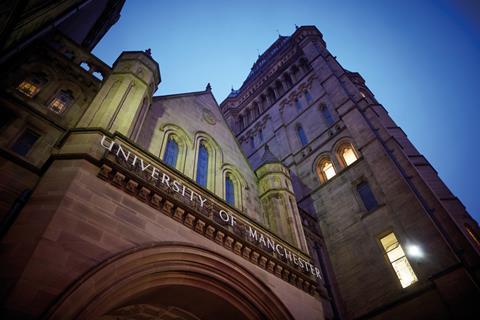A year on from a shocking report on racial bias and the bench, its authors hosted an event to evaluate progress. One conclusion was the judiciary needs to crack on with the report’s recommendations
A year has passed since the University of Manchester published a report on racial bias and the bench. Among its shocking findings was that more than half of all legal professionals surveyed had seen one or more judge act in a racially biased way.
The report made 10 recommendations. On Tuesday, the authors gathered in London for a hybrid event to discuss progress.
The audience was reminded of the report’s findings. ‘When the [mixed race] young man through his advocate attempted to explain why he had felt the officers had acted in a racist manner, the judge “refused” to hear these submissions,’ one respondent said.
‘Judges are routinely ignorant and dismissive of issues pertaining to race often asserting “we don’t see colour”,’ another claimed.
Lead author Eithne Quinn, professor of cultural studies at the University of Manchester, told the event that when judges take a dismissive approach to reports of racism, it becomes hard to challenge.
The report called for the Equal Treatment Bench Book, a manual given to judges and magistrates on appointment, to be revised. The bench book needed to start from a recognition that judges, like everyone, have socially and psychologically ingrained biases they need to understand and challenge, the report said. The number of editors from black communities, and who are themselves experts on racism and/or not judges, should increase.
The bench book ‘crystallises the wider problem of racial silencing unconsciously’ and lacks ‘concerted coverage of the racism experienced by black people’, Quinn told the event. Yet the book, a ‘live document’ that is regularly updated, has not been revised since the authors made their recommendations.

Over the summer, the Manchester report’s authors approached nine leading race experts for their thoughts.
Professor Anton Emmanuel, head of the NHS Workforce Race Equality Standard, said: ‘Ascribing common characteristics to all individuals in a socially defined group is flawed.’
Dr Shabna Begum, co-CEO of race equality thinktank the Runnymede Trust, said: ‘The power of the judiciary is tremendous and judicial racism has life-changing impacts on black and minority ethnic individuals and communities.’
‘Without modification, the bench book perpetuates the biases of the existing system,’ said Jabeer Butt OBE, head of the Race Equality Foundation.
The authors have used the responses to write a letter to the bench book’s editors.
'We’re not anti-racism experts either. We need people who are actual experts on racism to come up with the solution'
Abimbola Johnson, Doughty Street Chambers
The event heard that one branch of the legal system striving to do better is the Crown Prosecution Service. Graham Ritchie, deputy director of policy, said he strongly believes the CPS should be accountable for its role in a criminal justice system that produces disproportionate outcomes for black and minority ethnic people.
The CPS commissioned the University of Leeds to examine the outcomes of charging decisions and identify whether demographic factors led to disproportionality. The study found defendants from ethnic minority backgrounds were significantly more likely to be charged for a comparable offence than white British defendants.
The CPS is trying to understand the drivers of disproportionality in its decision-making. A study is being conducted with Aston University to review language used in case files. ‘We’re interested in whether the language for black defendants is different than the language that might be used for white defendants in comparable offences. Do we use more detailed descriptions, stronger language for black defendants as opposed to white defendants? That research will help us to understand the role of racism and racial bias in that process and how we target our efforts,’ Ritchie said.
A panel discussion, chaired by Gary Younge, a sociology professor and journalist, discussed whether the legal system can reform itself. Doughty Street Chambers’ Abimbola Johnson said a lot of anti-racism work is being done by lawyers of colour. The work is not paid. ‘We’re not anti-racism experts either. We need people who are actual experts on racism to come up with the solution.’
Much work the CPS is doing will need the police and judiciary to come to the table, Ritchie said.
Closing the event, Keir Monteith KC, one of the Racial Bias and the Bench authors, said the judiciary needs to crack on with the report’s recommendations. ‘No more reports from us. Just action. The action will get stronger each year. I’m tired of the lack of change. You in and outside this room are tired at the lack of change. But we are not going away until the system has changed.’



































